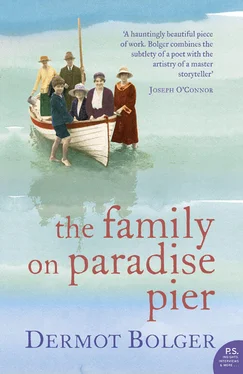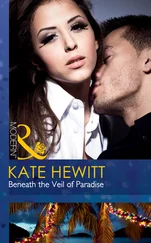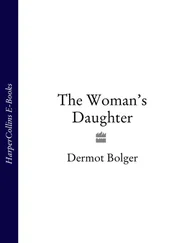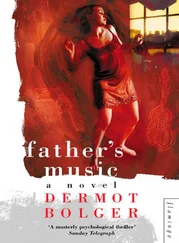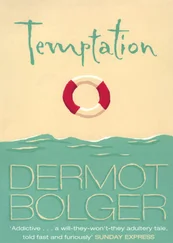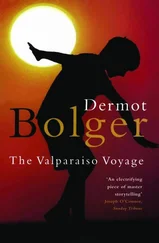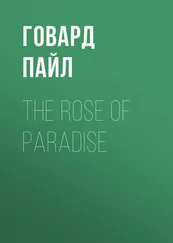Mrs Ffrench saw Art trying to shape a question, but no words came because the boy needed to believe in her husband. What did she believe? She watched her husband grow so animated that soon Art was caught up in his enthusiasm and asking questions again about the factory and the workers’ debates. Both she and Eva stopped talking so that they could listen too, because his version of Moscow was so wonderful that it felt like a poultice on her mental scars. It was simpler not to argue or even contradict him in her mind because maybe he was telling the truth and she had been too preoccupied with her own petty concerns to appreciate the wonder of revolution.
The children had brought food and it felt like a picnic to share it out by the fire in the study. The mantelpiece clock had long stopped and she had no idea what time it was when the young Goold Verschoyles left. But it was too late to do anything except retire to the main bedroom where the sheets felt damp. Her husband was asleep within minutes and she knew that he would not wake. She slipped from bed and walked from room to room, trying to reclaim all this space and make it feel that it belonged to her. But she felt uneasy, as if hordes of strangers might arrive at any moment to stake a claim to the kitchen or the locked room overlooking Donegal Bay that had been once intended as a nursery. She longed to immerse herself in a bath but knew that she could never scrub herself clean. Closing her eyes she could still smell in her pores the stink of foul breath and unwashed clothes in that Moscow room. So why was it that she could not hear the voices of the children who had clambered onto her knee to stare at her like a curio? She could not feel their fingers that had gripped hers, hoping that she might produce a morsel to feed them. Why was it that the single experience she treasured seemed to be erased from her mind, so that all she could hear was silence as she wandered from room to room, barefoot in her thin nightgown?
Donegal, August 1924
The more that Eva drew, alone in her studio, the less she could hear of the raised voices from the house. Her fingers shook, giving the elfin figures a slightly blurred outline. She had intended painting in oils today but once the shouting started she reverted to using this sketchpad on her knee, hunching over it to make herself as small as possible. She longed to escape and sketch wild flowers in the hedgerows, but was reluctant to leave her studio and cross the courtyard where the angry clash of voices would be impossible to ignore. Eva hated these arguments and the terse silence that followed them. During the fragile suspension of hostilities her brothers and Cousin George would individually visit the studio, ostensibly to comfort her, but each would start to justify their case, anxious to convert her into an ally.
Eva had no wish to take sides in the quarrels that had raged all summer. The Free State’s civil war was over, with de Valera’s Diehard Irregulars defeated. But just as an uneasy normality settled over the new nation they found themselves in, a civil war had commenced in the heart of her family. Friends and relations who visited earlier in the summer had helped to paper over the fault lines by dragging them back into a childhood world of tennis and picnics on the strand. These visitors inscribed amusing notes of thanks in the visitors’ book and carefully avoided politics like an unmentionable family illness. So perhaps Father was foolish to invite Cousin George to stay for Eva’s birthday party because Cousin George knew Art and Thomas too well to allow for any pretence. As a true Verschoyle he was as headstrong as they were. To him the family’s reputation was being indelibly eroded by Art’s wilful madness in embracing communism, which he considered to be a cancer gradually infecting them all. Such lunacy might be all right for pagans like the Ffrenches, but his uncle was always too soft in allowing inflammatory discussions at the table.
If Eva was forced to listen to George she knew that she would be swayed by the power of his argument but Art’s impassioned defence would equally convince her in turn. Her beliefs were more obscure and less dogmatic than either point of view. Although influenced by Mother, Eva found it hard to believe in the occult world as passionately as she did. Seances – with desperate women holding photographs of slain sons – seemed a form of voyeurism, making her as uncomfortable as these political arguments. This was why she locked herself away in her studio when the quarrelling started – not to avoid venturing an opinion, but to avoid favouring one family member over another. Ironically her silence seemed to lend weight to her opinions, with the others frequently appealing to her as if she were a judge who, when she finally spoke, could attest to the rights and wrongs of their dispute.
The voices grew louder as Eva crouched over her sketchpad, focusing all her attention on the tiny figures she was conjuring. They had wings and asexual bodies, flitting like bees around blooming foxgloves growing in a ditch. Her fingers were steadier now and she sketched the ditch with intense concentration. After some time Eva ceased to hear the arguing voices and initially thought that this was because she had managed to block them out. Then she realised that hostilities had paused. Soon the first petitioner would arrive to solicit support – George or Thomas, who generally sided with Art while maintaining his own slant on things, or Father, weary of trying to see both sides. By now Mother would have retreated to her bedsitting room to read the few books from the Rosicrucian Order in London which made it past the censorial new Irish post office, or some volume sent to her by Madame Despard – the elderly English suffragette who had settled among the Dublin poor and shared Mother’s interest in theosophy. Eva closed her eyes, allowing the sketch to become saturated with colour. She could visualise the ditch she had drawn from memory, with a tumbled-down, dry-stone wall. But, try as she might, she could not believe in the fairy figures. That childhood belief had died in London along with any belief in her ability as an artist. Art school had stripped her of illusions.
It did not seem like eighteen months ago since she had spent an autumn and winter sleeping in the tiny cubicle of a London hostel for shopgirls, with a sprig of Donegal heather beneath her pillow. Mother had considered London as the ideal tonic to lure Eva down from the ivory tower of this studio where she had locked herself up to secretly mourn the loss of her young New Zealand officer. It was only after Jack left that Eva fully understood her feelings. By then it was too late because no girl could write and ask for such a proposal again: Eva had constantly painted and destroyed portraits of him, grieving alone in this studio. Her obvious distress more than her talent made Mother enrol her in the Slade Art School. Eva had felt like a princess in a fairy tale, forced to plait her hair into a rope and descend into those bustling crowds to try and start a new life.
Her brief time in London was good in every respect except for painting. What slender spark of talent she possessed was quickly extinguished under the glare of her tutors at the Slade. The more they tried to teach her the less she found that she could paint. She discovered that she had more in common with the shopgirls in the hostel than her chic fellow students. Their cosmopolitan sense of surface gloss and parroting of the tutors’ techniques to create deliberately grotesque compositions made her retreat into herself. By comparison her paintings seemed naive, the childish work of an Irish country simpleton.
But back then Eva was certain that there had to be a purpose behind her stay in London, beyond avoiding the increasing vicious conflict in Ireland. When Art had visited her in the hostel between university lectures, Eva used to show him her poems urging the rebels to fight, fight, fight for what is right, right, right! But, in truth, at the age of nineteen in London her patriotic bursts were outweighed by her preoccupation with a different search for independence, the struggle to find a religion to which she might truly belong.
Читать дальше
